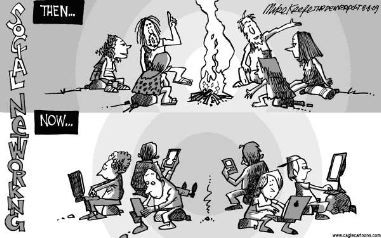Century Marks

Books to change lives: Hakim Hopkins was in juvenile detention when his mother sent him a copy of the classic Native Son, by Richard Wright. Reading the book changed Hopkins’s life and gave him a vocation: he runs an independent bookstore in inner-city Philadelphia with the name Black & Nobel (playing off the names of both Barnes & Noble and the Nobel Prize). A banner outside his store advertises, “We ship to prisons.” One customer who purchases books for her father in prison reported that he reads the books she sends him real fast—though he wasn’t a reader when he was out on the street (Philadelphia Inquirer, August 10).
Tax us: A group calling itself Wealth for the Common Good is encouraging the federal government to drop the Bush-era tax cuts immediately rather than wait until they will expire in 2011. “Those of us with taxable incomes over $235,000 benefited from the upside of the economy during the last decade and profited for eight years from a 2001 tax cut,” the group argues. “Now is the time to give back.” WCG figures that ending the tax cuts would yield an additional $43 billion per year. One of the group’s founders is Chuck Collins, heir to the Oscar Mayer meat company fortune, who has long been involved with income-equality issues (San Francisco Chronicle, August 10).
Kick them when they’re down: Al Szekely is an ordained minister, a disabled Vietnam War veteran and a homeless person. He had a bed in a shelter for the homeless until police swept through it looking for men with outstanding warrants. Szekely was nabbed because he had failed to show up to answer a charge of criminal trespassing—for sleeping on a sidewalk in a Washington suburb. After time spent in jail, he’s back on the street. Writer Barbara Ehrenreich says that the criminalization of poverty has increased with the recession. More municipal laws target the poor, prohibiting such acts as begging, sharing food with the poor in public places, loitering, littering and truancy (New York Times, August 9).
Ecclesial downsizing: Churches and synagogues have traditionally fared reasonably well during economic recessions, but the current downturn is having a different impact. Greater demands are being placed on churches by members who are economically stressed, and pastors have the challenge of explaining financial losses in spiritual terms. Cuts in giving compel congregations to cut their budgets, lay off staff and postpone capital projects. “Ten percent of zero is zero,” says one unemployed layperson. “I can’t tithe without a job” (Wall Street Journal, August 1l).
Taking the plunge: Outdoor baptisms are “a feature of American Protes tantism that is vanishing,” observes church historian David Daniels, professor at McCormick Theological Seminary (and a Christian Century board member). No one keeps statistics on outdoor baptisms, but the Southern Baptist Convention reports that most of the 342,000 baptisms performed in SBC churches last year were done indoors (USA Today, August 4).
National Health Care Sunday: John Killinger is calling pastors to be advocates for a national health-care plan. He suggests that on September 6 sermons should focus on national health care, and notes that the lectionary for that Sunday includes a great health-care text—the story of Jesus’ healing of the daughter of the Syrophoenician woman (Mark 7:24-37). Jesus at first refused to heal this woman’s daughter since she wasn’t a Jew, but he eventually gave in because of the woman’s importunity. Everyone deserves health care, says Killinger, even the “little dogs” under the table (from a news release).
Banning babies? It’s a perennial debate: Should crying infants in church be taken to a soundproof “crying room,” or should adults and others in the sanctuary put up with the distraction? One side argues that no one wants to be distracted by a wailing infant during the sermon. Another side says that the church isn’t the church unless all are welcome, no matter what age, and that babies and young children should remain with their parents in order to learn how to behave during worship. “If you have a church and do not hear any crying babies, it’s a dying church,” says a Virginia pastor. “Your church isn’t going to survive long” (RNS).
Staying put: Research by evangelical pollster George Barna indicates that many gays are Christians who consider their faith a central part of their lives. Ann Kansfield, who with her partner copastors a Reformed congregation in Brooklyn, says: “Once you experience God’s grace, nothing on earth could make me give up the faith that has allowed me to experience the life-changing power of God’s grace. No homophobe, no one who wants to beat us up or get us out of the church, nothing is going to chase me away from loving God, and being grateful for the gift of God’s grace.” Kansfield cannot be ordained in her own denomination (www.politicsdaily.com).
True grit: Researchers are discovering that grit and determination are a better determinant of future success than intelligence. In a study conducted among fifth graders in New York City schools, after taking an IQ test, one group was praised for their intelligence, another for their effort. The ones praised for working hard raised their scores by an average of 30 percent on a subsequent test, while the ones praised for intelligence dropped their scores by nearly 20 percent. A “grit survey” is available at www.gritstudy.com (Boston Globe, August).
Benefits of AA: Lois Judson, an alcoholic, is not convinced that everyone who attends her AA group is really an alcoholic. Not every negative feeling or experience in life can be attributed to the desire for a drink, she argues. Nevertheless, she says, all people benefit from the structure, philosophy and community that AA provides (The Sun, August).





